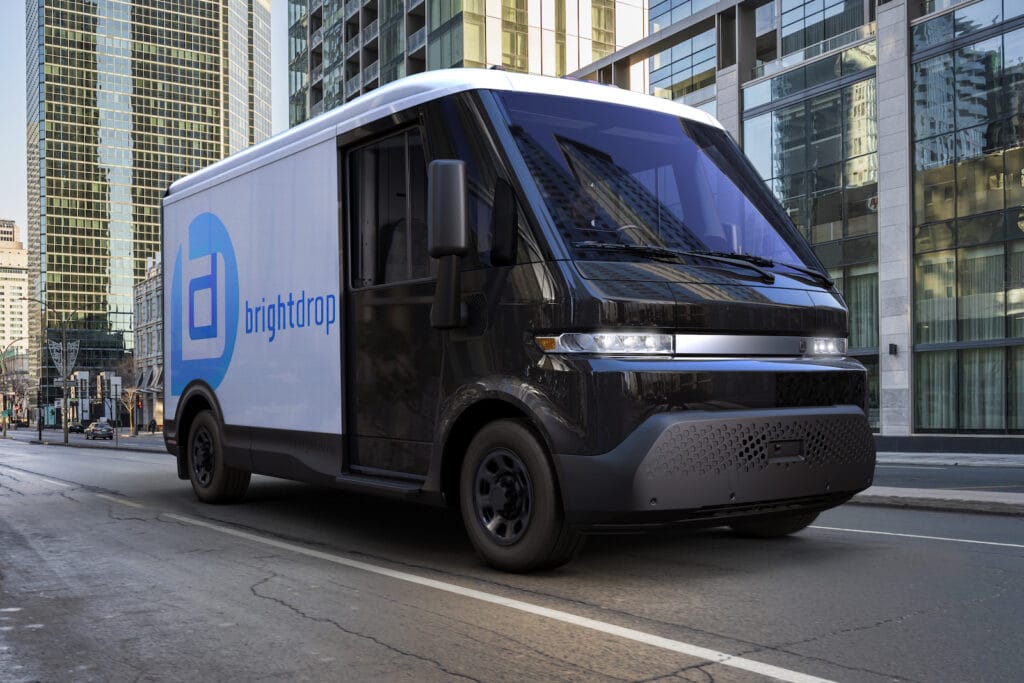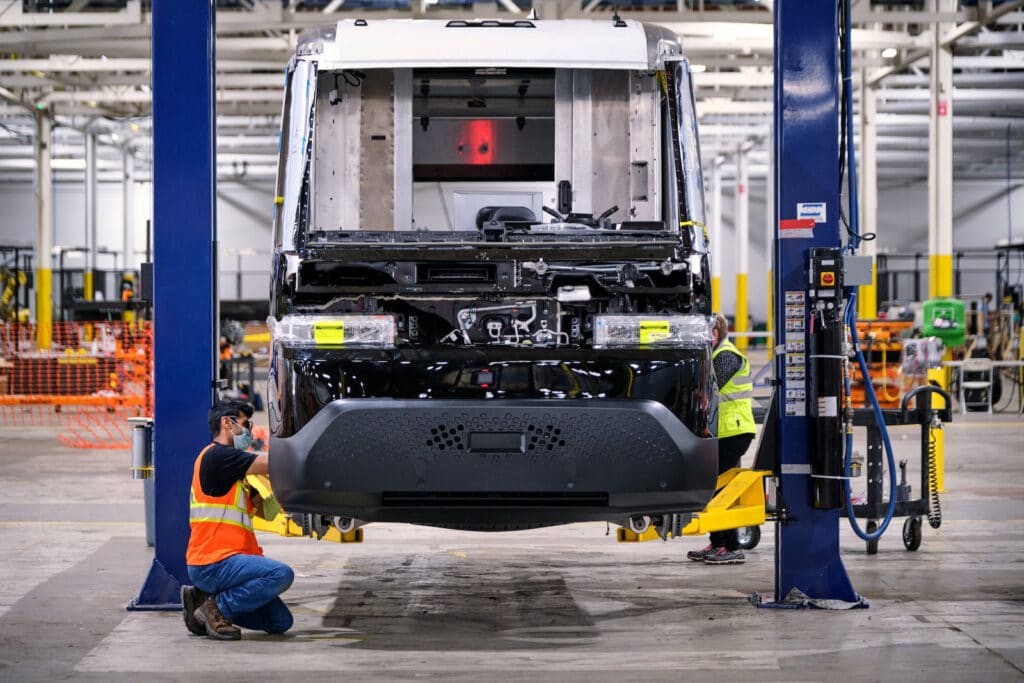BrightDrop, General Motors’ new all-electric delivery truck brand, is lining up new customers while also adding a second model to its line-up — with still more products in the works, according to its president and CEO.

The announcement comes less than a day after Ford Motor Co. revealed plans for a new factory to build all-electric F-Series pickups that also are expected to target the commercial vehicle market. Fleet customers and contractors are widely expected to shift to battery power because of its significantly lower operating costs.
Unveiled last January during the virtual version of the annual Consumer Electronics Show, BrightDrop’s first product line, the EV600, “remains on track” to reach its first customers by the end of this year,” said CEO Travis Katz, adding that this was “the fastest vehicle ever developed in GM history … going in just 20 months from conception to commercialization.”
Accelerating the launch
To pull off that accelerated program, GM adopted a “two-stage manufacturing process,” said the startup’s manufacturing chief Tushar Porwal. The first EV600 electric delivery trucks are now being assembled at a supplier plant in Detroit, he explained. In the months ahead, however, the tooling will be moved to Ingersoll, Ontario, where GM’s old CAMI plant is undergoing an extensive refurbishment.
BrightDrop’s second model, the EV410, will be added to the factory about a year later. The smaller truck will have a wheelbase of just 150 inches and measure 20 feet nose-to-tail, making it possible to tuck into a typical street side parking space. It will boast the same, 250-mile range as the longer EV600 but, at around 410 cubic feet, provide a third less interior space.

That should be enough for some applications, especially food delivery services, as well as for contractors. Katz said he sees strong demand among telecomm services, such as Verizon. The first customer for the EV410 plans to use the battery-truck for its customer service and maintenance fleets.
BrightDrop officials wouldn’t disclose how many of the trucks Verizon has ordered. But Katz confirmed that FedEx, the first scheduled to receive the EV600, has 500 on tap. Merchant Fleets, a national fleet management company, has ordered another 12,600 of them. And Katz hinted that other customers are being lined up.
Slashing operating costs
The electric delivery truck market is growing fast. While “deal(ing) with climate change and urban congestion” is one of the reasons, Katz added there’s also a bottom-line driver.
They are “radically less expensive to operate,” he said, estimating that the typical fleet customer “would save an average $7,000 a year driving an EV600 rather than a diesel vehicle.” Energy costs are the primary reason, especially for fleets that operate their own chargers and can access off-peak utility rates. But maintenance costs also should be lower since battery-electric vehicles don’t need tune-ups or oil changes.

As a result, said the CEO “we expect to see commercial fleets convert to EVs faster than other (transportation) sectors.”
The deliveries must go through
During a videocall with journalists, Katz said BrightDrop targeted an optimal range of 250 miles per charge recognizing that the number will fall, sometimes sharply, depending upon how, when and where a vehicle like the EV410 is driven. Cold weather can severely impact range, especially if a delivery driver blasts the heater while the doors are left open.
For the majority of delivery services, 100 to 150 miles range would be sufficient. Even under a worst-case scenario, Katz said, “We don’t want to get into a situation where driver is stuck on the side of the road unable to complete their deliveries.”
For those who still might find a rated range of 250 miles overkill, BrightDrop is planning to add shorter-range options in the future. And, said Katz, the EV410 won’t be the last new model. “We have a pretty rich pipeline of other products we are working on.”
BrightDrop has not yet revealed pricing for its two models.
GM officials are by no means the only ones who see great opportunities for electric delivery vehicles. Startup Rivian has already taken orders for 100,000 of its own trucks from Amazon Prime alone. Stellantis, Ford and other manufacturers are pushing into the sector, as well.







